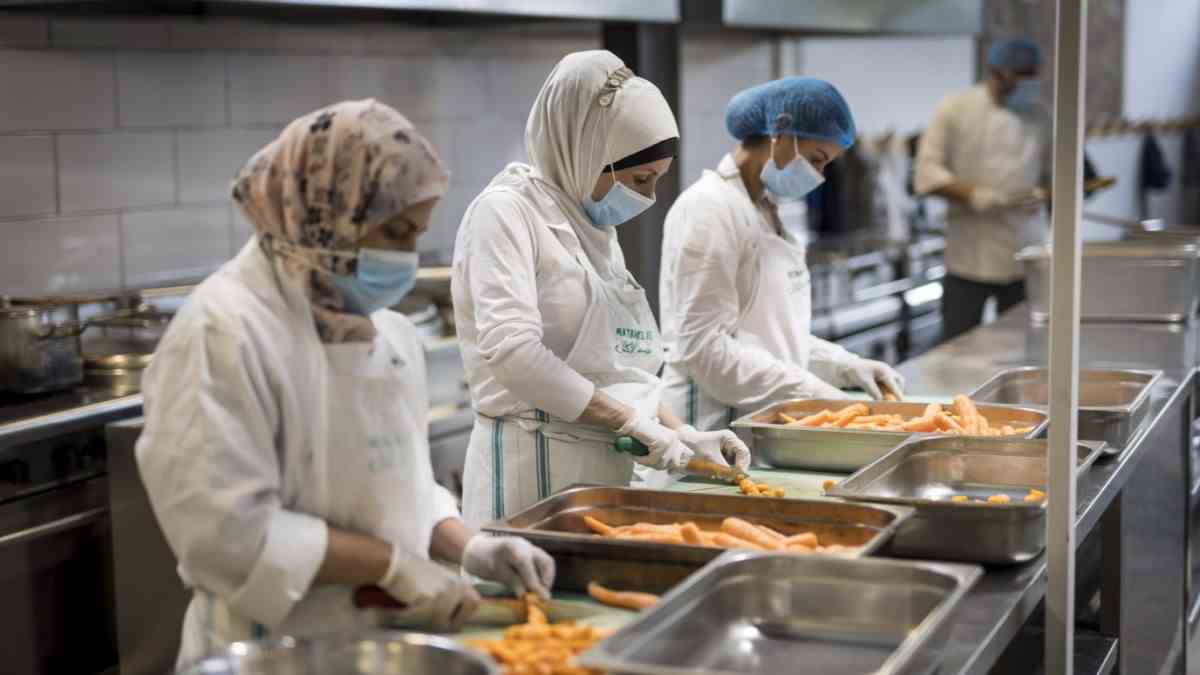Lisa Khoury is exhausted. Too much is going through her head these days. Daughter Maryliz sits on her lap and becomes restless. “She’s hungry, but I can’t cook anything for her yet. We don’t have electricity right now,” explains the mother in the video call and gently encourages her child. She asks, “Why should I vote if none of the politicians care about us?”
Lisa Khoury lives with her family in Beirut, the capital of Lebanon. A new parliament is to be elected there on May 15. These are the first elections since the economic crisis began in October 2019, which threw the so-called cedar state into a dangerous downward spiral and the majority of its citizens into poverty.
The election next weekend should finally bring stability to Lebanon again after the devastating port explosion in August 2020. It could be a turning point, but trust in politics is low. A survey by the aid organization association Oxfam shows that only 54 percent of those surveyed plan to vote.
The Lebanese pound has lost about 85 percent in value in 2020 alone. With the war in Ukraine, Lebanon is also threatened with a hunger crisis because, according to the European Commission, the small Mediterranean country imports around 96 percent of its wheat from Ukraine and Russia.
The middle class hardly exists anymore
“The whole country is fragile, there is a lack of food, medicine and infrastructure,” says Lebanese political scientist Maria Noujaim. According to the World Food Program (WFP), 46 percent of the Lebanese are at risk of not being able to afford food. The middle class, to which Lisa Khoury once belonged, is practically non-existent. Before the hyperinflation, her husband earned the equivalent of almost 2700 euros – today his salary is only worth around 150 euros. “With that we can just pay our rent and the costs for the electricity generator,” says Lisa Khoury, describing the situation. “We have no money, no petrol – we have nothing,” says the 42-year-old.
Fuel is scarce, Lebanon lacks the foreign exchange for the necessary imports. This affects many areas of life, not only do many refrigerators stand still due to a lack of electricity, hospitals also have major problems, even school education suffers because the way to school costs many teachers more than they earn. The high cost of petrol will probably also have an impact on the election, because according to electoral law, the Lebanese must cast their vote where they were born.
All reports and background information on the war in Ukraine – in the SZ in the morning and in the SZ in the evening. Our news–Newsletter brings you up to date twice a day. Free registration at sz.de/morgenabend. In our news app (download here) you can also subscribe to the news newsletter or our breaking news as a push message.
Fawaz Gerges blames the electoral system for the crisis: “Lebanon will only have a political future if the existing system is abolished,” says the professor of international relations in London. In the multi-confessional country, the distribution of seats in parliament is regulated according to religious affiliation. The law was intended to ensure peaceful coexistence after the civil war ended in 1990, but it has only cemented the influence of the sectarian political elite. “The same warlords who fought in the civil war are still in power today,” says Gerges. “Some of these warlords have blood on their hands and keep clientelism alive in the country.” That is why the economic and social reconstruction of Lebanon is a long-term project.
Many Lebanese no longer hope for political change, they see a way out of their misery in fleeing abroad. According to a survey by the Arab Barometer research network, every second person is considering leaving the country in search of a better life.
“If we don’t change anything in the country now, then when?”
“Young people in particular are paying the price for long-term mismanagement and bad politics. We bled them dry, now they are fleeing abroad,” says Georges Okais. The politician has been a member of parliament for the Lebanese Forces since 2018, a party that emerged from a militia that emerged during the civil war. In order to find a way out of the crisis, one must win back the trust of the West and at the same time try to “push the Shiite Hezbollah, which is classified as a terrorist group in many Western countries, out of parliament.” Hezbollah is working to fill the Sunni vacuum left by the resignation of Sunni leader Saad Hariri. Only when this problem has been solved can the government bring reforms to bring people an upswing.
Verena El Amil belongs to the group of young people who would rather work for a better future in Lebanon than leave the country. The 26-year-old campaigns in the extra-parliamentary opposition for a secular state – a state with a dignified government that does not line its pockets with corruption.
“My dream is to give my generation the chance for renewal. If we don’t change anything in the country now, then when? If not the young generation, then who?” The young politician is well aware that her chances of being elected to parliament are slim. But she believes in the symbolic power of her candidacy. The fact that young people haven’t given up on Lebanon should give their compatriots confidence – and encourage them to vote.

